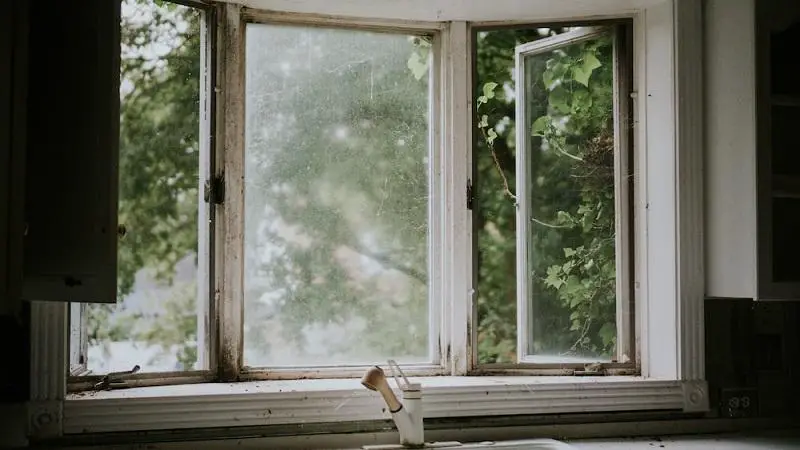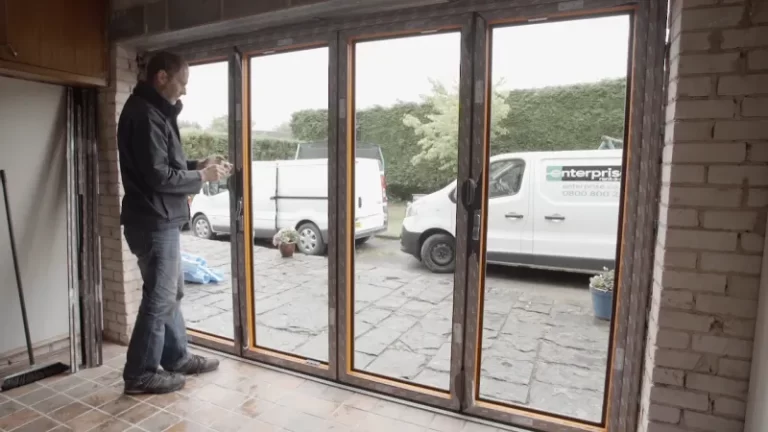Why My House Window Makes Noise When Opening?

House windows are an essential part of any home, providing natural light, ventilation, and a view of the outside world.
However, windows can sometimes make noise when they are opened or closed, which can be frustrating and annoying for homeowners. There are many potential reasons why a house window might make noise, including broken or rusted wheels, dirty or rusted tracks, and improper installation.
In this article, we will explore the various reasons why a house window might make noise and provide some tips and solutions for reducing or eliminating this noise.
You'll Learn About
House Window Makes Noise When Opening Causes
There are many reasons why the house window makes noise while opening. The most common cause is, the window may not be properly lubricated, causing friction between the moving parts and resulting in noise.
The window may be out of alignment, causing the moving parts to rub against each other and create noise. The window may be old or in poor condition, with loose or worn-out components that can cause noise when the window is opened or closed. The window may be installed improperly, leading to excessive movement or instability that can cause noise.
The window may be subjected to strong winds, which can cause it to vibrate or rattle and make noise. Other parts of the window, such as the hinges or the latch, may be broken or malfunctioning, causing noise as the window is opened or closed.
Broken Wheel
If one or more of the wheels that support the window as it opens and closes are broken, this can cause a significant amount of noise. The broken wheel may cause the window to stick or jam, making it difficult to open or close. Additionally, the broken wheel may cause the window to vibrate or rattle as it moves, making a loud noise.
Rusted Wheel
If the wheels that support the window are made of metal and have not been properly maintained, they can rust over time. This rust can cause the wheels to stick or seize, making it difficult to open or close the window. Additionally, the rust can cause the wheels to scrape against the window frame or track, creating a loud, grating noise.
Dirty Wheel Track
The track that the window wheels run along can become dirty over time, particularly if the window is not used frequently. This dirt and debris can accumulate on the track, making it difficult for the wheels to move smoothly. As a result, the window may make a loud scraping or grinding noise as it is opened or closed.
Other Parts might be Broken
In addition to the wheels and the track, there are many other components that make up a window and allow it to open and close smoothly. If any of these other parts are broken or malfunctioning, this can cause the window to make a noise when it is opened or closed. For example, the hinges that hold the window in place may be loose or broken, causing the window to rattle or shake as it moves. Additionally, the latch or lock that secures the window may be damaged or misaligned, causing it to make a clicking or grinding noise as it is engaged or disengaged.
Improperly Installed
In some cases, the noise caused by a window may be the result of improper installation. If the window is not installed correctly, the various parts and components may not be aligned properly, causing excess movement or instability. This can lead to the window making a loud, rattling noise as it is opened or closed. Additionally, if the window is not installed securely, it may be susceptible to wind or other external forces, which can cause it to vibrate or rattle, making a noise.
Rusted Wheel Track
Like the wheels themselves, the track that the wheels run along can rust if it is not properly maintained. This rust can cause the track to become rough or uneven, making it difficult for the wheels to move smoothly. As a result, the window may make a loud, grating noise as it is opened or closed. Additionally, the rust can cause the track to become clogged with debris, further hindering the movement of the wheels and increasing the noise level.
How to Fix a Noisy Window?
Fixing a noisy window is important for a number of reasons. Firstly, a noisy window can be a source of annoyance and discomfort for homeowners and anyone else living or working in the building. The noise can interrupt conversations, TV shows, or music, and can make it difficult to relax or concentrate.
Secondly, a noisy window can be a sign of underlying problems, such as worn or broken parts, improper installation, or other issues that may affect the operation and longevity of the window. By fixing these problems, you can prevent further damage and ensure that the window continues to function properly.
Thirdly, a noisy window can be a source of embarrassment or inconvenience, particularly if the noise is audible to neighbors or passersby. By fixing the problem, you can avoid drawing unwanted attention to your home and maintain a positive relationship with your neighbors.
Overall, fixing a noisy window is important for maintaining the comfort, functionality, and appearance of your home.
Here’s how to fix a noisy window:
Replace Broken Wheel
If the window is making noise due to a broken wheel, the easiest and most effective fix is to simply replace the broken wheel with a new one. This can typically be done by removing the old, broken wheel and installing a new one in its place. Depending on the specific type of window, this may require some basic tools and hardware, such as a screwdriver, pliers, or a wrench.
Clean Rusted Wheels
If the window is making noise due to rusted wheels, the fix may be as simple as cleaning the wheels and removing the rust. This can typically be done with a wire brush or sandpaper, as well as a rust-removing product, such as vinegar or lemon juice. After cleaning and removing the rust, it is important to lubricate the wheels to prevent further rusting and ensure smooth operation.
Clean Dirty Wheel Track
If the window is making noise due to a dirty wheel track, the fix may be as simple as cleaning the track to remove any debris or dirt. This can typically be done with a vacuum cleaner or a soft-bristled brush and may require removing the window from the frame in order to access the track.
After cleaning the track, it is important to lubricate it to prevent further accumulation of dirt and debris and ensure smooth operation of the wheels.
Replace Rusted Wheel Track
If the window is making noise due to a rusted wheel track, the fix may involve replacing the entire track. This can typically be done by removing the old, rusted track and installing a new one in its place. Depending on the specific type of window, this may require some basic tools and hardware, such as a screwdriver, pliers, or a wrench.
Use Lubrication
In many cases, the noise caused by a window can be greatly reduced or eliminated by simply applying a lubricant to the moving parts, such as the wheels and the track. This can help to reduce friction and smooth out the movement of the window, reducing or eliminating any noise.
There are many different types of lubricants available, such as silicone sprays or oils, and it is important to choose one that is specifically designed for use on windows.
Install The Parts Properly
If the window is making noise due to improper installation of the moving parts, such as the wheels or the track, the fix may involve re-installing these parts correctly. This can typically be done by following the manufacturer’s instructions and using the proper tools and hardware.
It is important to ensure that the parts are installed securely and properly aligned, in order to prevent any excess movement or instability that can cause noise.
To Recap
House windows can sometimes make noise when they are opened or closed no matter if it is egress or not, which can be a source of annoyance and frustration for homeowners. The causes of this noise can vary but may include broken or rusted wheels, dirty or rusted tracks, and improper installation.
To reduce or eliminate this noise, homeowners can try replacing or cleaning the affected parts, applying lubrication, or re-installing the window properly. By taking these steps, it is possible to restore the smooth, quiet operation of the window and enjoy a more peaceful and comfortable living environment.

